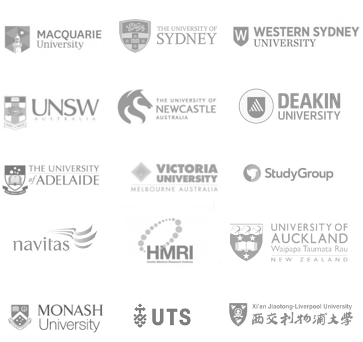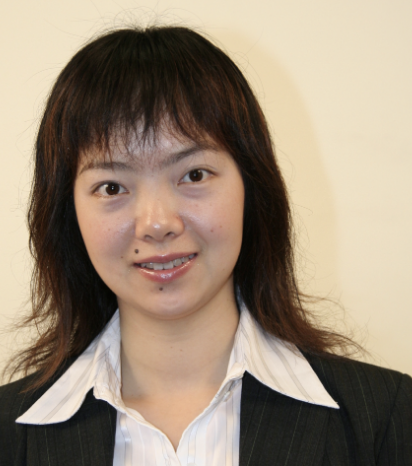
Recent appointments: Head of the School of Biomedical Engineering, The University of Sydney
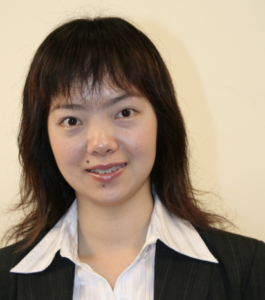
Professor Wei Chen has been appointed as the Head of the School of Biomedical Engineering at The University of Sydney. Professor Chen joins from Fudan University, where she is the director of the Center for Intelligent Medical Electronics (CIME). Professor Chen received her Bachelor of Engineering degree and Masters of Engineering in telecommunication systems and smart sensor systems, from Xian Jiaotong University, China. She obtained her PhD degree from the Department of Electrical & Electronics Engineering at The University of Melbourne, Australia. She worked in Germany at Bell Laboratories, and Alcatel-Lucent. Before joining Fudan, she was an Assistant Professor at Eindhoven University of Technology, the Netherlands. She is a Senior Member of IEEE and associate editor of the IEEE Journal on Biomedical Health Informatics (J-BHI).
Professor Chen is a leading authority in biomedical engineering. She researches in the multidisciplinary areas of wireless sensor systems, patient health monitoring, ambient intelligent system design and digital signal processing for performance optimization, with application to neonatal monitoring, elderly care, smart rehabilitation, interactive and cognitive environments.
About the appointment
The Faculty of Engineering at the University of Sydney is one of the largest and most preeminent engineering faculties in the world, and ranked 4th in Australia (THE subject rankings 2022) and 65th globally (QS Rankings by Subject 2021) for engineering and technology.
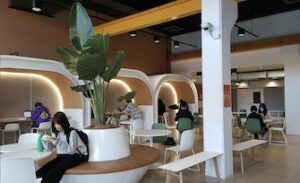 The School of Biomedical Engineering was established in 2019 to inspire research and teaching to revolutionise healthcare and improve lives through innovative biotechnology solutions that redefine what’s possible within the healthcare industry. The School’s research strengths include: implantable bionics and electroceuticals; engineered biomaterials and nanomaterials, 3D printed platforms for regenerative medicine; biomedical imaging and addressing chronic disease. The School includes an Australian Research Council (ARC) funded Training Centre for Innovative Bioengineering focused on the three themes of innovative biomaterials, technologies and sensor and telemetry technologies. It is also involved with the ARC Research Hub for Advanced Manufacturing of Personalised Medical Devices .
The School of Biomedical Engineering was established in 2019 to inspire research and teaching to revolutionise healthcare and improve lives through innovative biotechnology solutions that redefine what’s possible within the healthcare industry. The School’s research strengths include: implantable bionics and electroceuticals; engineered biomaterials and nanomaterials, 3D printed platforms for regenerative medicine; biomedical imaging and addressing chronic disease. The School includes an Australian Research Council (ARC) funded Training Centre for Innovative Bioengineering focused on the three themes of innovative biomaterials, technologies and sensor and telemetry technologies. It is also involved with the ARC Research Hub for Advanced Manufacturing of Personalised Medical Devices .
The School recently moved into purpose-built facilities in the campus Engineering and Technology Precinct.
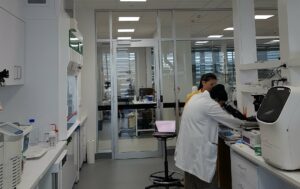 More about the Biomedical laboratories is available here.
More about the Biomedical laboratories is available here.
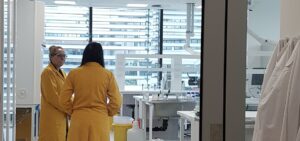

The University of Sydney has just announced investment in a biomedical precinct, the Sydney Biomedical Accelerator, to position Sydney as a global leader in biomedical research.
The Biomedical Accelerator has been benchmarked against the world’s leading biomedical facilities such as the Karolinska Institutet (50 percent of Sweden’s life science companies in one precinct), the University of Toronto’s MaRS Discovery District and MassBio (life science super-cluster of 1,100 members including Harvard, MIT, Brigham and Women’s Hospital and Boston Children’s Hospital.)
Over 1200 world class biomedical researchers and clinician scientists will be located onsite at the SBA, including over 800 university laboratory researchers and PhD students and 100 industry researchers.
For other opportunities see our postings here.

